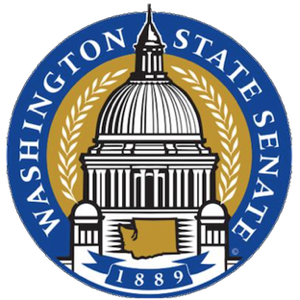The Washington State Senate (WA Senate) convenes floor sessions to read, debate, amend, and vote on legislation.
Second and Third Reading
- HB 1453 - “Providing a tax exemption for medical cannabis patients.”

The Washington State Senate (WA Senate) convenes floor sessions to read, debate, amend, and vote on legislation.
Senators reduced by half the period of time registered patients would be exempted from a cannabis excise tax under HB 1453, but a large majority again supported the change.
Here are some observations from the Friday March 1st Washington State Senate (WA Senate) Session.
My top 4 takeaways: